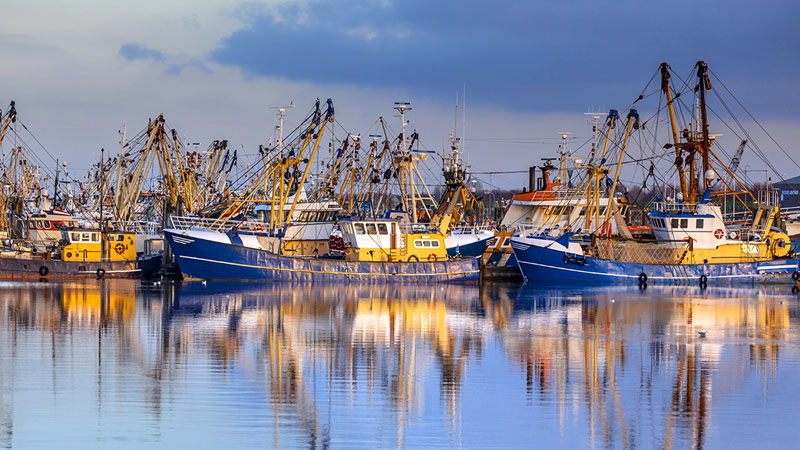Exclusive content

In the latest developments from NOAA’s Seafood Import Monitoring Program (SIMP) in the United States, federal efforts to combat illegal, unreported, and unregulated (IUU) fishing are intensifying, particularly concerning shrimp imports. SIMP, a critical regulatory framework, aims to ensure that seafood entering U.S. commerce adheres to strict standards, safeguarding both the environment and consumers.
Key Findings from NOAA’s Latest Reports
The recently delivered Report on SIMP to Congress highlights statistics and enforcement actions impacting the shrimp industry:
- Volume and Value of Shrimp Imports: In FY 2023, the U.S. imported 556 million pounds of shrimp valued at $2.3 billion, underscoring its substantial contribution within SIMP’s purview.
- Compliance Challenges: NOAA audits revealed that 56% of entry filings audited were noncompliant, primarily due to issues such as incomplete chain of custody and misreporting of harvest weight.
Enforcement Actions and Regulatory Measures
NOAA’s Office of Law Enforcement conducted 106 physical inspections of commercial shrimp imports at major U.S. Ports of Entry in FY 2023. These inspections, often involving 40-foot ocean containers, were carried out in collaboration with key federal agencies such as U.S. Customs and Border Protection, Homeland Security Investigations, and the U.S. Coast Guard. The focus areas included Pacific Islands and Long Beach, California, pivotal regions for seafood imports.
In line with conservation efforts, NOAA refused imports of nearly 70 tons of shrimp from China and Vietnam under Section 609 regulations. These laws aim to prevent the entry of wild-caught shrimp or products harvested with technologies that endanger protected sea turtle species.
Market Trends and Economic Insights
Despite a decline in overall seafood imports to the U.S. from FY 2022 to FY 2023, the value of these imports nearly doubled. Shrimp, alongside tuna, continues to dominate, constituting approximately 75% of SIMP products by both volume and value.
Looking ahead, NOAA remains vigilant in leveraging SIMP data to enhance intelligence-led investigations targeting suspected violations. Furthermore, ongoing evaluations seek to understand the pandemic’s impact on seafood supply chains and market dynamics, providing critical insights for future regulatory adjustments.